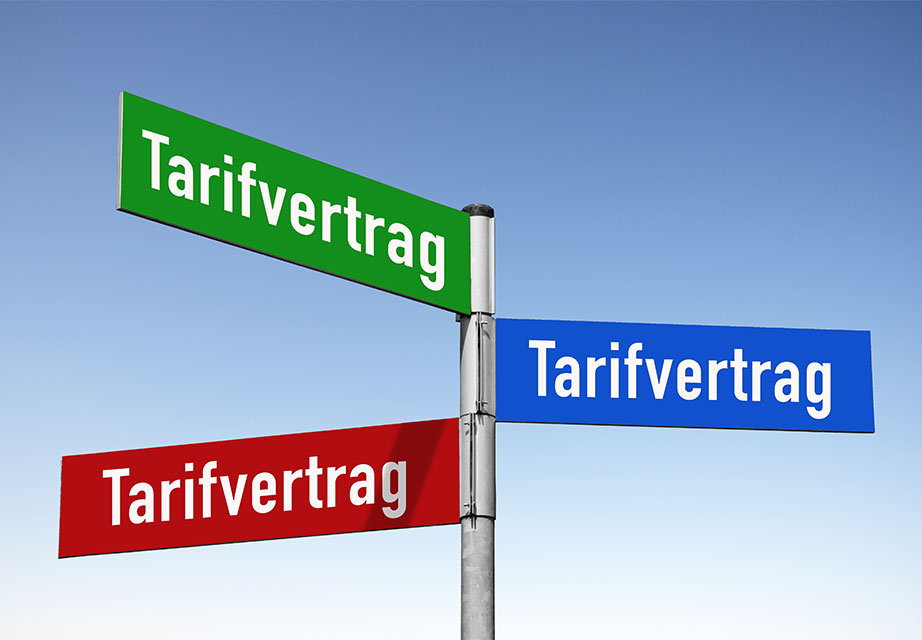Collective bargaining policy is a core element of the social market economy.

©AdobeStock hkama
Recognize and use the advantages of the collective agreement
The collective agreement - in particular the sectoral or regional collective agreement - is rightly still the dominant factor in industrial relations in Germany. Overall, collective agreements apply directly or as a reference framework to more than ¾ of all employees in Germany. For most employers, collective negotiation of working conditions is thus still the preferred form of and structuring of employment relationships.
Diverse regulations in collective agreements
The collective bargaining partners determine in collective agreements, for example, the prerequisites, requirements and rules of an employment relationship. They can do this in a much more differentiated and tailored way than the legislator. An employer or an employers' association can conclude a collective agreement with a trade union. It then applies to an individual company (so-called company or in-house collective agreement) or to an entire industry (so-called association, industry or regional collective agreement). A collective agreement can apply to an individual company, a region such as a federal state or, in the case of a nationwide collective agreement, to the whole of Germany.
Collective bargaining agreements specify, among other things:
- the amount and composition of remuneration (collective pay agreements),
- other terms and conditions of the employment relationship (general or framework collective agreements), e.g. its commencement and termination, the , supplements for overtime or work at certain times such as night work, the duration of holidays, special payments such as Christmas bonuses and additional holiday pay or the definition of different pay groups, or
- individual topics such as , partial retirement, additional or job security.
There are a number of convincing arguments in favour of the sectoral collective agreement:
- The sectoral collective agreement largely keeps conflicts out of the plants and thus ensures industrial peace.
- The area-wide collective agreement allows for trouble-free supply relationships during its term due to the peace obligation. are prohibited during the peace period.
- Particularly in a highly networked economy based on the division of labour, the sectoral collective agreement offers companies planning security.
- The regional collective agreement relieves companies of the time-consuming and costly burden of their own
- The regional collective agreement is a genuine service offered by the employers' association concluding the collective agreement, particularly when it comes to regulating complex legal matters - especially for small and medium-sized enterprises.
- In the regional collective agreement - as nowhere else - macroeconomic aspects can also be taken into account.
Strengthen the company level - reduce overregulation
The BDA's approach to reforming the sectoral collective agreement is aimed at reducing overregulation and strengthening the scope for action at company level. Collective bargaining conditions must once again be minimum conditions in the economic sense. This applies to pay, special payments such as Christmas bonuses and holiday pay, and also to working time arrangements. In order to give companies and employees sufficient freedom, collective agreements should therefore primarily be framework regulations. By constantly adapting the sectoral collective agreement to changes in company practice, decision-making powers can be shifted from the collective bargaining level to the company level by means of "controlled decentralisation". The way to this is paved by opening clauses in collective agreements which allow deviations from the minimum level of the collective agreement at company level. In addition, a modular system with various modules instead of an entire collective bargaining package can be a solution approach, especially for small companies. Companies that are deterred by the complexity of an entire collective agreement should be able to opt, for example, for the pay framework from a collective agreement without at the same time adopting complex regulations on working time from that collective agreement.
Facts and figures
There are around 80,000 collective agreements in force in Germany.







